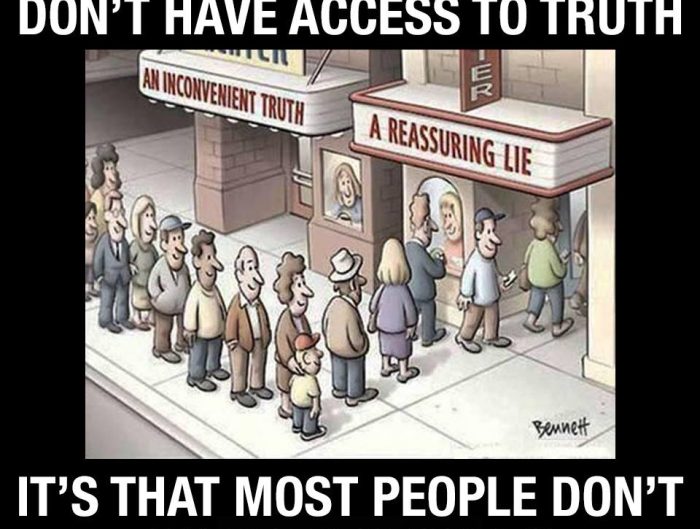One of the primary things I’ve learned over the past twelve years working in the nonprofit space is that, first, we know how to solve many of the challenges we face–climate change, poverty, you name it. And second, that we lack enough people working to implement and advocate for the solutions we have. In my case, given the audacity of Capital Good Fund’s mission–to create pathways out of poverty and advance a green economy–it is clear that neither I nor the organization alone can realize our vision for the nation and the world.
Recognizing this, I dedicate a significant percentage of my time to inspiring and encouraging high school and college students, as well as recent graduates, to work in the social sector, broadly defined as nonprofits, for-profit social enterprises, and government. I give talks to high school and college students; write poems and essays; and participate in other forums, such as webinars and conferences, all with an eye toward getting more people to invest their time, talent, and energy into doing good. It is hard for me to know the extent to which I succeed in moving the needle, but it is a passion of mine–it is devastating to know that, for lack of people and funding to implement solutions, billions of human beings suffer needlessly from hunger, poverty, the impacts of climate change, and the like.
I am often asked what the best way to do good is, and my answer is always this: the most impact you have is in your job, in what you spend at least forty hours a week doing for at least thirty years. Too many people buy into the notion that it is justifiable to work for a company that is not aligned with your values so long as you volunteer on the side and donate to charity. But that model simply doesn’t work, for several reasons. First, large corporations are one of the largest drivers of inequity in the world, be it environmental degradation, underpaying workers, or lobbying against fair taxation and consumer protections. Helping these businesses make even more money at the expense of people and the planet cannot be squared with wanting to help…people and the planet. Nor is it logical to believe that companies can be “changed from within”: they almost certainly cannot, and your time is much better spent elsewhere.
Second, we don’t have time to wait for people to make a lot of money and then donate it to charity: the climate crisis is a crisis today; every day a child goes hungry is an unconscionable injustice. Put another way, a life changed today is worth more than a life changed tomorrow; I refer to this as the net present value of injustice. We need everyone working, right now, for a better world.
Finally, the scope of the challenges we face are far too great to tackle with charity and volunteerism alone: we need an all-hands-on-deck approach, with every single sector of the economy and society working in concert toward shared goals of a prosperous future.
With that in mind, the next question I get is, how do I plan for a career that aligns with my values? I tend to respond by marveling that we seem to spend more time thinking about what Netflix show we’re going to watch, or researching restaurant ratings, than we do about how to make intentional career choices. The simple fact of the matter is that if one is not careful, one can very easily wind up taking any old job and then, thirty years later, suddenly find that one has been unhappy at work for their entire adult life! Good does not happen on its own; good is a function of intentional, calculated, diligent planning and execution.
So my advice is this. Create a mission statement and rubric for yourself and then benchmark any career option against it. When I started graduate school, I decided that whatever career path I chose had to operate at the intersection of poverty and environment: I wasn’t interested in saving trees for the sake of trees alone, nor did I want to tackle poverty without addressing the climate crisis that is disproportionately impacting low-income families. I decided that I didn’t care in what capacity I would work on these issues–whether that was in government, at a nonprofit or for profit, or even starting my own organization. That flexibility allowed me to remain open to opportunities that might emerge. I certainly never expected to start a nonprofit, but when the idea to offer loans to empower lower-income Americans to better their lives and also invest in climate-mitigation through energy-efficiency, I decided to pursue it. Capital Good Fund checked all the boxes.
You are of course free to craft your own mission statement and rubric! First, you want to identify the issues you care about. Be as specific as you can without being prescriptive; had I said that I only wanted to work on energy burdens in low-income households, I might not have been open to starting a nonprofit lender. Second, be open to how you address the issue(s) you’re passionate about. For instance, if you want to work on domestic violence (“DV”), you shouldn’t necessarily limit yourself to only working as a social worker or counselor (unless that is of particular interest to you). You may find that, as you research the issue, the idea of working on public policy related to DV really catches your eye; or maybe you get excited by the idea of using the law to protect survivors, and end up going to law school.
Third, devour everything you can on the topic. Reach out to nonprofit and community leaders; listen to podcasts, read blogs, sign up for newsletters; talk to thought leaders and professors. There are so many resources out there, and most people will meet with you if you are clear about why, are respectful of their time, and come prepared.
Fourth, do not underestimate the impact you can have by working on public policy or in government. While starting an enterprise or joining a nonprofit may seem sexier or more obvious, only the government has the ability to set the stage for dramatic change. As a case in point, suppose you want to end hunger in America. You can come up with all manner of approaches, but if the federal government were to raise the minimum wage or increase SNAP (food stamp) benefits, hunger could easily be eliminated through one piece of legislation. No problem can be solved without government intervention; tax policy, regulation, the social safety net, and other public policies determine what’s possible, or at least how easy it is to do good. And when I speak of public policy, I mean that broadly. You can work at a think tank, run for elected office, or become a policy aid for an elected official. Nor should you limit yourself to the federal government: we need smart people working at the state and local level, on school boards, state treasurers offices, in public transit, etc.
And lastly, give yourself the freedom to experiment. Before starting Capital Good Fund, I had about ten ideas that didn’t pan out: a composting venture where I collected people’s compost and took it to a local composting site; an environmental consultancy; a system wherein drivers of electric cars could come to a station and, rather than charge their battery, simply swap it out for another; and a solar canopy design that would use rain water to clean the panels, thereby increasing efficiency. I explored each idea, gave myself the space to feel it out, and, when it was clear that the project didn’t have legs, I abandoned it.
The same logic applies even if you aren’t starting a venture. Volunteer or intern for interesting organizations. Join student or community groups. Attend trainings, protests, and marches. Get on calls with activists and community organizers. In short, immerse yourself in the issue, come to understand it, see if it resonates with you, and remain open to different ways of addressing. And most importantly, always benchmark any possible career choice against your mission statement and rubric. If a job offers you more pay but doesn’t meet your other criteria, then hold out for the lower-paying job that does. I can’t emphasize that enough: it’s better to earn a little less money but feel that you are living out your values! If just a few more of us do live out our values, well, the sky’s the limit in terms of how beautiful we can make the world!



